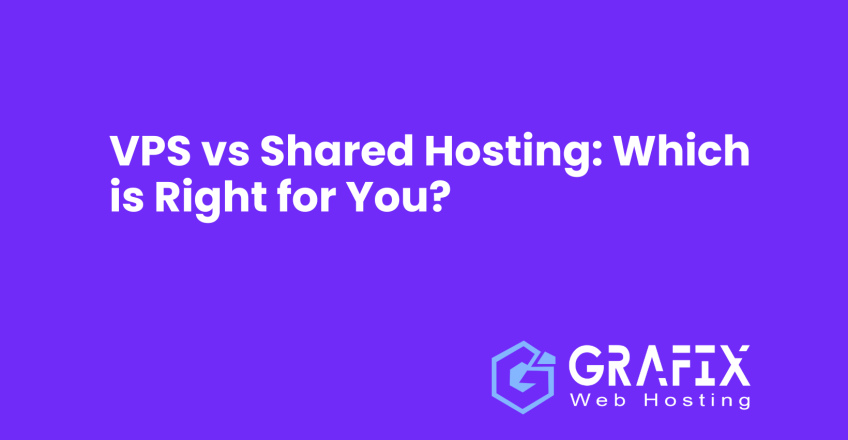
VPS vs Shared Hosting: Which is Right for You?
When it comes to web hosting, there are many options available, each with its own advantages and disadvantages. Two popular options are VPS (Virtual Private Server) hosting and shared hosting. In this article, we’ll discuss the differences between VPS and shared hosting and help you determine which is the right hosting option for you.
Shared Hosting:
Shared hosting is a type of web hosting where multiple websites share a single server and its resources. This makes shared hosting an affordable option for small businesses and individuals who are just starting their online presence. Shared hosting plans are easy to set up and manage, and they often include features like one-click installation of popular CMS platforms like WordPress.
Pros:
- Affordability: Shared hosting is the most affordable type of web hosting available, making it an excellent option for those on a tight budget.
- Easy to Use: Shared hosting is easy to set up and use, with most hosting providers offering user-friendly control panels and one-click installation for popular website platforms like WordPress.
- Good for Small Websites: Shared hosting is ideal for small websites with low to moderate traffic, as it provides sufficient resources to handle their needs.
Cons:
- Limited Resources: With shared hosting, you’re sharing server resources with other websites, which can result in limited resources and slower website performance.
- Security Risks: Shared hosting can pose security risks, as a vulnerability in one website can potentially affect all websites on the server.
- Limited Control: With shared hosting, you have limited control over server settings and configurations, which can be a disadvantage if you need to customize your website or run specific applications.
VPS Hosting:
VPS hosting is a type of web hosting where a single physical server is divided into multiple virtual servers, each with its own operating system, resources, and settings. This allows website owners to have more control and flexibility over their hosting environment, making it an excellent option for websites with more complex needs.
Pros:
- More Control: With VPS hosting, you have more control over server settings and configurations, allowing you to customize your hosting environment to your specific needs.
- Increased Security: VPS hosting provides better security than shared hosting, as each virtual server is isolated from other virtual servers, reducing the risk of security breaches.
- Scalability: VPS hosting is scalable, allowing you to easily upgrade or downgrade your resources as your website grows.
Cons:
- Cost: VPS hosting is more expensive than shared hosting, making it less suitable for small businesses or individuals on a tight budget.
- Technical Knowledge: VPS hosting requires more technical knowledge than shared hosting, as you’ll need to manage your server’s operating system and configurations.
- Maintenance: With VPS hosting, you’ll need to handle server maintenance and updates, making it a more time-consuming option than shared hosting.
In conclusion, the choice between VPS and shared hosting depends on your website’s needs and budget. Shared hosting is a cost-effective and easy-to-use option for small websites with low to moderate traffic, while VPS hosting provides more control, security, and scalability for websites with more complex needs. If you’re just starting your online presence or have a small website, shared hosting may be the right option for you. However, if you need more control, security, and scalability, VPS hosting may be the better choice.
